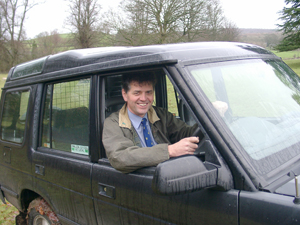
Imagine a science-fiction film where the hero enters a community where everyone is old, with no one and no services to look after them.
That could be the fate of our rural areas warned Douglas Chalmers, Director CLA North, commenting on the 2007 State of the Countryside Report published by the Commission for Rural Communities.
Mr Chalmers explains: "People aged between 15 and 29 are key players in any community. They come through further or higher education, get jobs, start families and move into their own homes. In doing so, they generate the economic activity that supports the key services essential to sustaining that community. This Report's finding that there are 400,000 fewer of this age group in rural areas than there were 20 years ago is a clear indication that there simply aren't the jobs and houses to keep them there.
"The next generation go away to be educated, and can't or won't come back because there are no jobs, houses or prospects. Others are effectively driven away for the same reasons, having to move to unfamiliar towns and putting miles between themselves and their families.
"400,000 people in one place is the population of Bristol, but spread across the country they're harder to spot. However, two moving from the farms up a lane here and four from the village there can have a significant effect on their own communities.
"This population drain can be masked by the numbers of older people moving into the countryside, but if these incomers do not have to be economically active, contributing to the rural economy, the problem can be exacerbated. It may sound like a cliché now, but "sustainability is a three legged stool". The social benefits that people need and the environmental benefits - aesthetic or climate change - that people want can only be provided by a vibrant rural economy.
"Communities need a range of ages, but the young "stoke the boiler" to keep these communities running. We need more affordable rural housing and greater flexibility in the planning system to allow businesses to expand and provide the higher quality jobs they want to stop them leaving ".
